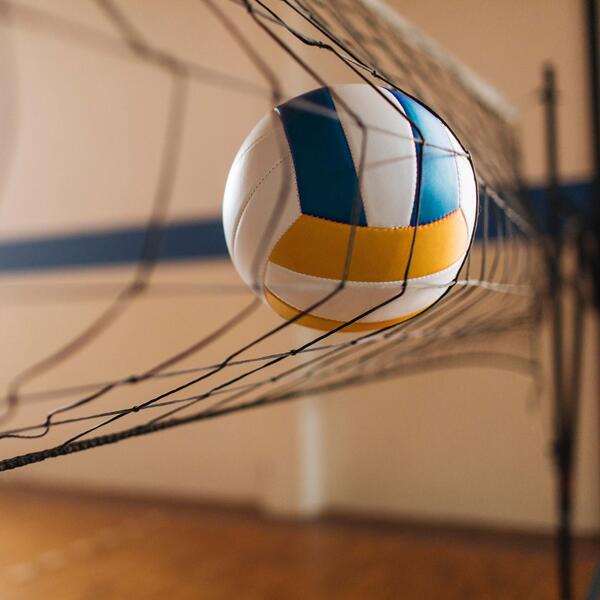Releases
WADA Executive Committee receives Independent Prosecutor’s final report

-
Report finds no bias towards China and reaffirms WADA’s decision not to appeal cases was reasonable
-
Report includes findings as to how anti-doping rules and WADA’s administrative processes can be further strengthened
-
Executive Committee agrees to establish a Working Group that will focus on recommendations that can be reviewed and approved by the ExCo
Today, the World Anti-Doping Agency’s (WADA’s) Executive Committee (ExCo) met in Belek, Republic of Türkiye, where it discussed the final reasoned report presented virtually by Independent Prosecutor, Mr. Eric Cottier, regarding his review of WADA’s handling of the China Anti-Doping Agency’s (CHINADA's) no-fault contamination cases involving 23 swimmers from China in 2021.
In his opening remarks to the ExCo, Mr. Cottier said: “I am pleased to confirm that my conclusions, which were published via my interim report on 9 July, have not changed. The information in the file shows that WADA has done its work autonomously, independently and professionally, and that there is no evidence to the contrary. WADA has applied the rules to which its activity is subject.”
Mr. Cottier then noted that his final reasoned report went beyond the two questions that he was posed for the review, offering a number of findings, including that:
-
Clarification of certain anti-doping rules should be considered as part of the World Anti-Doping Code and International Standards Update Process that is currently underway, in particular with the regards to specific situations of group contamination; and
-
Formalization of certain administrative processes should be considered within WADA.
Mr. Cottier then turned his attention to CHINADA and, consistent with WADA’s previously stated view, said: “As far as the Chinese agency is concerned, it is clear that certain rules of the World Anti-Doping Code have not been applied. This is regrettable, but in the end, it does not change the outcome of the cases and the acceptance of the contamination hypothesis.”
Following his remarks, ExCo members had the opportunity to ask questions of Mr. Cottier, which were answered comprehensively. The Committee thanked him once again for the thorough and expeditious manner in which the review was carried out in order to provide high-level outcomes in advance of the Paris 2024 Olympic and Paralympic Games.
WADA Director General Olivier Niggli said: “WADA’s Executive Committee was pleased to have the opportunity to discuss the Independent Prosecutor’s final reasoned report into the Chinese swimming cases in some detail. Mr. Cottier unambiguously stressed that WADA’s review was thorough, professional and followed the rules. Above all, he reiterated that WADA showed no bias towards China and that its decision not to appeal the cases was reasonable based on the evidence. There are however certainly lessons to be learned by WADA and others from this situation and therefore, we see this as an opportunity to work with our stakeholders to further strengthen the global anti-doping system for athletes worldwide.”
The ExCo was particularly grateful for Mr. Cottier’s additional findings as to how anti-doping rules and WADA’s administrative processes could be further strengthened e.g. by improving internal guidelines as it relates to the management of cases; improving communications with National Anti-Doping Organizations and athletes regarding cases; and exploring how WADA’s Anti-Doping Administration and Management System [ADAMS] might be optimized to alert as to delays in the analytical or results management process.
In fact, following a discussion among members, it was agreed to establish a Working Group to focus on turning the findings of Mr. Cottier’s reports and those of the Anti-Doping Audit Review Committee of World Aquatics on the same topic into recommendations that can be reviewed and approved by the ExCo. This includes strengthening WADA's internal processes and ExCo responsibilities highlighted by the cases. The Working Group will be chaired by independent ExCo member Gabriella Battaini-Dragoni and consist of one ExCo member from the Public Authorities, one ExCo member from the Sport Movement, and one ExCo member from the Athlete Council. WADA Management and an independent legal expert will support the Working Group, which will submit recommendations to the ExCo in December.
The recommendations of this Working Group will be carefully assessed with the view to strengthening the rules as part of the World Anti-Doping Code and International Standards update process that is currently underway in consultation with all stakeholders worldwide.
WADA President Witold Bańka continued: “We especially welcome Mr. Cottier’s suggestion that we look at the rules concerning group contamination. These Chinese swimming cases reflect the inherent difficulty of dealing with cases of alleged contamination. With laboratories now able to routinely detect tiny concentrations of prohibited substances in the millionth or even billionth of a gram range, many of the adverse findings are theoretically compatible with trace, inadvertent contamination. Contamination scenarios, including very intricate and seemingly improbable ones, are being accepted more and more readily by tribunals.
“The challenge for WADA, other Anti-Doping Organizations and, ultimately, for the tribunals adjudicating these cases is to distinguish between cases of genuine contamination, and cases of well-resourced cheats who fabricate a contamination defense. If the system is too strict and rigid, innocent athletes will suffer injustice; if the system is too lenient, cheats will be able to (micro)dope with impunity and the level-playing field will be lost. This is one of the key challenges that the fight against doping in sport now faces and will increasingly face in the coming years. WADA will therefore ask its Code Revision Team, as well as its dedicated Contaminants Working Group, to reflect on this problem and consider the need for regulatory improvements with the goal of ensuring harmonization for athletes and Anti-Doping Organizations.”
About the Independent Prosecutor Review
The decision to appoint Mr. Cottier was endorsed by the ExCo on 25 April, following requests for such a review by stakeholders. Mr. Cottier was asked to use his best endeavors to issue his report by the end of June 2024. However, in the event that the final report could not be issued within that timeframe, he was asked to issue a summary interim report before the Paris 2024 Olympic and Paralympic Games. Accordingly, on 9 July, Mr. Cottier delivered an interim report that included his conclusions in relation to the two questions he was posed, with the view to issuing his full, reasoned report at a later date, which he has now done.
1. Is there any indication of bias towards China, undue interference or other impropriety in WADA's assessment of the decision by CHINADA not to bring forward anti-doping rule violations against the 23 Chinese swimmers?
- There is nothing in the file – which is complete – to suggest that WADA showed favouritism or deference, or in any way favoured the 23 swimmers who tested positive for trimetazidine (TMZ) between 1 and 3 January 2021, when it proceeded to review CHINADA's decision to close the proceedings against them without further action.
- The Investigator did not find any evidence to suggest any interference or meddling in WADA's review, as described above, either within the Agency or externally, from any entity or institution, including CHINADA or the Chinese authorities.
- The investigation did not reveal any irregularities on the part of WADA in the review of CHINADA's decision; this review was detailed and covered all relevant issues in determining whether or not to appeal the decision.
2. Based on a review of the case file related to the decision by CHINADA not to bring forward Anti-Doping Rule Violations against the 23 Chinese swimmers, as well as any other elements that WADA had at its disposal, was the decision by WADA not to challenge on appeal the contamination scenario put forward by CHINADA a reasonable one?
-
All the elements taken into consideration by WADA, whether they come from the file produced by CHINADA with its decision or from the investigation procedures that it carried out, show the decision not to appeal to be reasonable, both from the point of view of the facts and the applicable rules.
Note: A media release outlining other matters discussed and decisions taken during today’s ExCo meeting, will be published later today.

